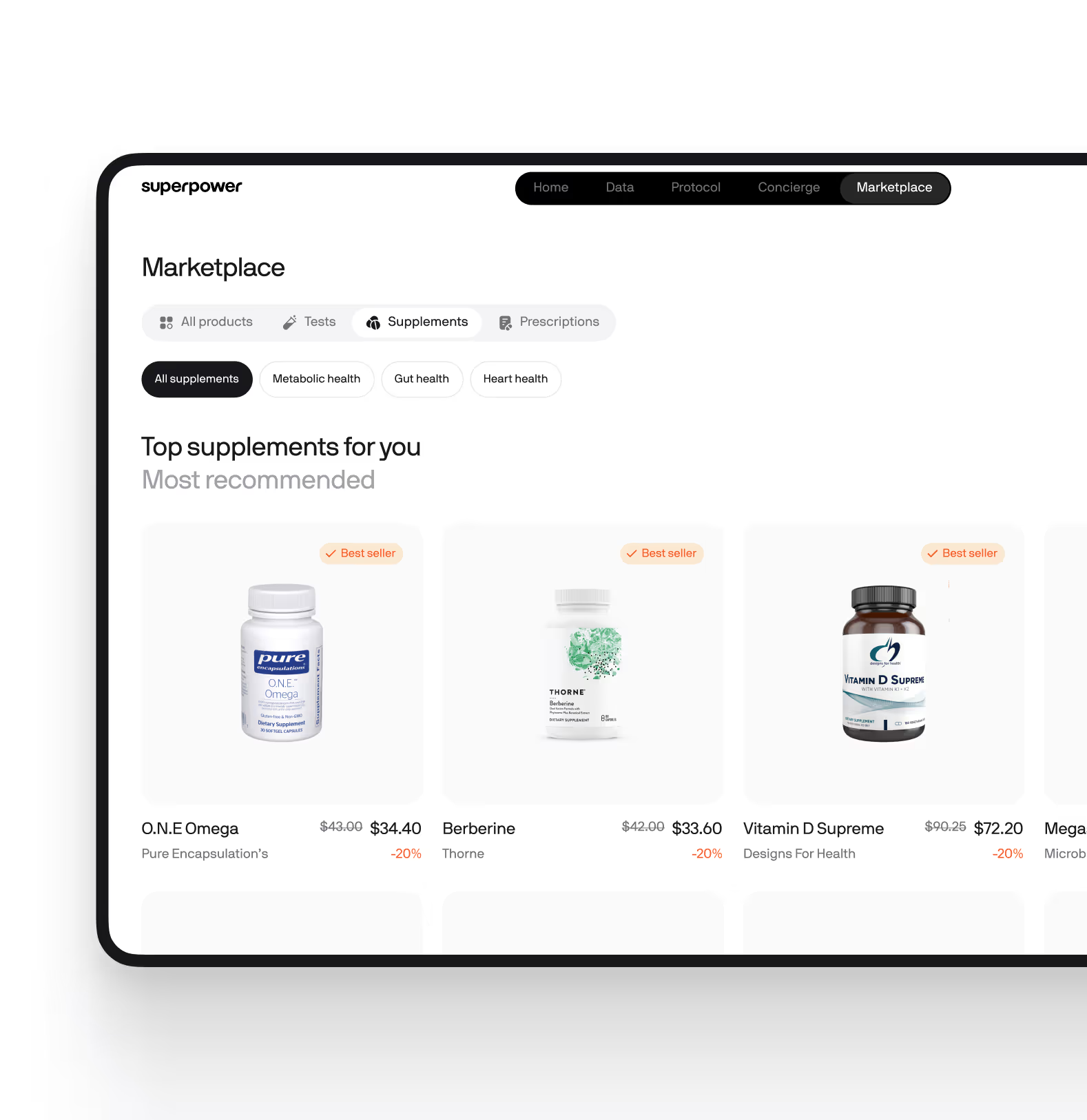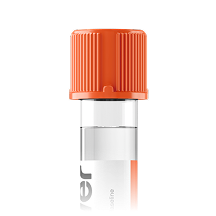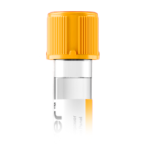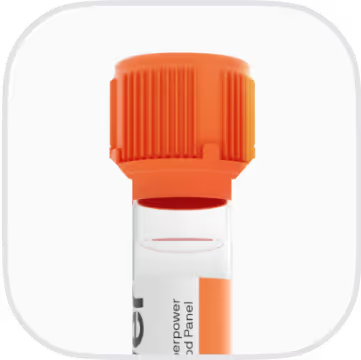Key Benefits
- Spot early insulin resistance that drives diabetes and heart risk using cholesterol particle patterns.
- Clarify fatigue, sugar crashes, or stubborn weight by revealing heightened insulin demand.
- Guide diet, activity, and medication choices to improve insulin sensitivity and outcomes.
- Protect heart health by detecting harmful cholesterol particle changes before blood sugar or A1c rise.
- Protect fertility by uncovering insulin resistance linked to PCOS and ovulation problems.
- Support pregnancy planning by identifying insulin resistance, a modifiable gestational diabetes risk factor.
- Track progress over time as your score responds to lifestyle and treatment.
- Best interpreted with fasting glucose, A1c, triglycerides, waist, blood pressure, and symptoms.
What is a Cardio IQ Insulin Resistance blood test?
Cardio IQ Insulin Resistance blood testing is a cardiometabolic panel that estimates how resistant your body is to insulin (insulin resistance). It measures insulin produced by pancreatic beta cells alongside select metabolic signals released into the bloodstream by the liver, fat tissue, and circulating lipoproteins, then brings them together into a coherent picture of insulin action. In plain terms, it reads the chemical fingerprints that show how hard insulin must work to keep your energy fuels in balance (pancreatic insulin secretion, hepatic glucose handling, fat metabolism).
Insulin’s job is to move glucose into muscle and fat and to tell the liver and fat cells to shift from releasing fuels to storing them (glucose uptake, suppression of hepatic glucose output and lipolysis). When tissues respond poorly, the pancreas compensates by raising insulin, lipid patterns shift, and metabolic strain builds. This test captures that physiology, offering a snapshot of whole‑body insulin signaling efficiency and its downstream effects—an early view of cardiometabolic stress that can emerge before obvious sugar abnormalities appear (dysglycemia).
Why is a Cardio IQ Insulin Resistance blood test important?
The Cardio IQ Insulin Resistance blood test estimates how effectively your body responds to insulin—the hormone that moves glucose into muscle and liver cells. It reveals metabolic stress long before blood sugar rises, linking everyday energy, appetite signals, liver fat handling, blood pressure tone, and cholesterol particle patterns to future risks for diabetes and heart disease. Reference ranges vary by lab, but lower scores or indices generally indicate better insulin sensitivity; within reference ranges tends to sit toward the low end.
When values are low, tissues are receptive to insulin, glucose transitions smoothly into cells, and the pancreas doesn’t need to overwork. People often experience steady energy, fewer post‑meal crashes, and easier weight control. Rarely, a low result paired with high glucose can mean inadequate insulin production (beta‑cell failure), which is interpreted in context with glucose and A1c.
Higher values reflect insulin resistance: cells ignore insulin signals, prompting the pancreas to produce more. This hyperinsulinemia drives higher triglycerides, lower HDL, smaller denser LDL particles, rising blood pressure, and liver fat accumulation. Common life effects include fatigue after carbohydrate‑rich meals, increased waist size, cravings, skin tags, and darkened neck/underarm skin. In women it can disrupt ovulation and suggest risk for polycystic ovary syndrome; in men it associates with lower testosterone and erectile issues. Children and teens may show resistance during puberty, amplified by excess weight. In pregnancy, elevated resistance signals higher risk for gestational diabetes and hypertensive disorders.
Big picture: insulin resistance sits at the crossroads of metabolism, vascular health, liver function, and reproduction. Interpreted alongside fasting glucose, A1c, triglycerides, HDL, liver enzymes, and waist measures, this test helps map long‑term risk for type 2 diabetes, fatty liver disease, and atherosclerotic cardiovascular events.
What insights will I get?
The Cardio IQ Insulin Resistance test estimates how resistant your body is to insulin by analyzing lipoprotein particle patterns in the blood. Because insulin orchestrates how cells use and store energy, this score reflects the efficiency of glucose handling, liver fat export, and lipid trafficking. It links directly to whole‑body metabolism, cardiovascular risk, liver health, reproductive hormones, and brain energy balance.
Low values usually reflect higher insulin sensitivity. Cells take up glucose readily, the liver exports fewer triglyceride‑rich particles, and lipid profiles tend to be favorable. Younger individuals and premenopausal women often show lower scores. Early pregnancy can be lower, with a natural rise later. Very low scores are generally not pathological in this context.
Being in range suggests stable insulin signaling, flexible fuel use, and balanced lipoprotein metabolism, which supports steady energy, healthier vascular function, and lower long‑term cardiometabolic risk. For most populations, optimal cardiovascular risk tracks toward the lower end of the reference range.
High values usually reflect insulin resistance—reduced cellular response to insulin with compensatory hyperinsulinemia. The liver increases production of triglyceride‑rich VLDL; LDL and HDL particles shift toward smaller, denser forms. System‑level effects include higher glucose variability, higher triglycerides, lower HDL, endothelial stress, fatty liver tendencies, and increased atherosclerotic risk. Scores often rise with aging, after menopause, in puberty, in polycystic ovary syndrome, and in late pregnancy.
Notes: This score is derived from lipoprotein measurements and is typically interpreted alongside glucose, A1c, insulin, and triglycerides. Fasting, acute illness, pregnancy, puberty, and medications (for example glucocorticoids and some antipsychotics) can shift results. Assay methods and reference ranges vary by lab.


.svg)









.avif)



.svg)





.svg)


.svg)


.svg)

.avif)
.svg)










.avif)
.avif)



.avif)







.png)

.avif)


